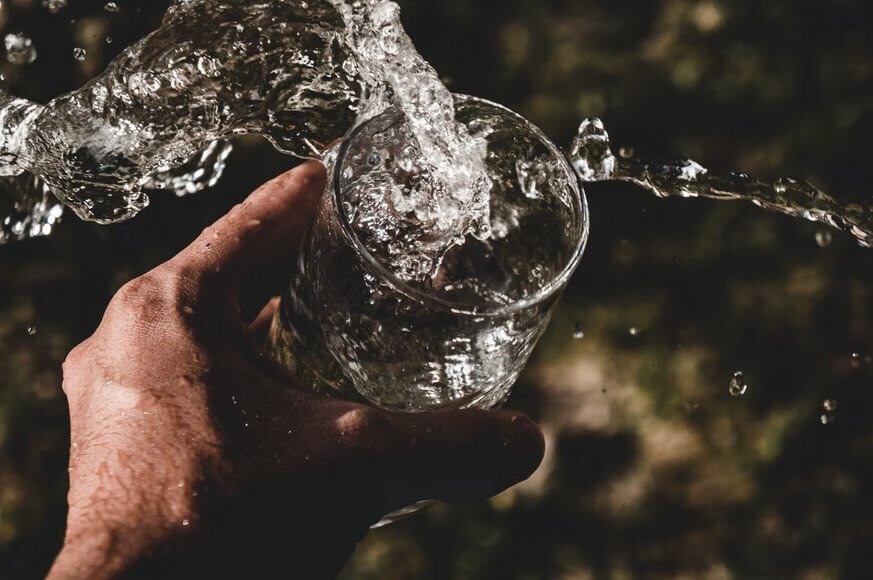Everyone knows that drinking plenty of water throughout the day is important. It can affect your overall health as well as your energy levels. But just how much water should you drink? And are there any other factors to consider when it comes to hydration? Here are 6 hydration facts that will enable you to build healthy habits and enjoy your days to the fullest.
1. Water Filters Are Important
Before you start thinking about how many glasses of water per day you should drink, it’s important to make sure that the water you’re drinking is clean. In order to ensure that you’re always drinking refreshing water that has all the necessary minerals without any of the impurities, investing in a quality water filter is key. There are many different types of water filters on the market – from simple pitchers to under sink systems – so you can find one that fits your needs and budget.
Public water supplies are regulated by the Environmental Protection Agency (EPA), but it’s still a good idea to filter your water at home. This is because the EPA only regulates a limited number of contaminants, and there may be other impurities in your water that are not regulated.
2. Activity Levels Impact Hydration Needs
We’ve all heard about the 8 cups of water per day rule, but the truth is that there is no one-size-fits-all answer when it comes to how much water you should drink. This is because your hydration needs vary depending on things like your activity level, the climate you live in, and your overall health. If you live an active lifestyle or spend time outdoors in hot weather, you’ll need to drink more water than someone who is sedentary and spends most of their time indoors. It’s also important to drink more water if you’re sick, as your body will lose water through things like sweating and vomiting.
So yes – as a starting point, 8 cups of water per day is a good rule of thumb, but be sure to adjust your intake based on your individual needs.
3. Caffeine And Alcohol Are Dehydrating
It’s no secret that caffeinated beverages like coffee and soda can have a dehydrating effect. This is because caffeine is a diuretic, which means it increases urine production. While you don’t need to completely avoid caffeine, it’s important to be aware of its dehydrating effects and make sure you’re compensating by drinking extra water. Alcohol is also a diuretic, so it will have the same dehydrating effect as caffeine.
In addition to causing dehydration, alcohol can also make you more susceptible to heat exhaustion and sunburn, so it’s important to be extra careful if you’re spending time outdoors in hot weather and drinking alcohol.
4. Foods Can Impact Hydration Levels
In addition to drinks, the foods you eat can also impact your hydration levels. This is because some foods are more water-dense than others. Water-dense foods like fruits and vegetables contain a high percentage of water, so they can help to keep you hydrated. On the other hand, processed foods like chips and cookies are low in water and high in salt, which can actually cause dehydration.
So, if you’re looking to up your hydration game, focus on eating more water-dense foods like fruits and vegetables. Additionally, if you do eat foods that are high in salt, sugar, or fat, make sure to drink extra water to compensate.
5. You Might Be Dehydrated And Not Know It
One of the most surprising hydration facts is that you can actually be dehydrated and not know it. This is because the early signs of dehydration are often subtle and easily mistaken for other things.
For example, feeling tired or cranky can be a sign of dehydration, as can having dry skin or lips. Headaches, difficulty focusing, and dizziness are also common early signs of dehydration. So, if you’re feeling off and can’t seem to pinpoint the reason, dehydration might be to blame. If you’re thinking “but I don’t feel thirsty” – it’s important to note that by the time you actually do feel thirsty, you’re already dehydrated. In other words, thirst is not a good indicator of hydration levels. The best way to make sure you’re staying properly hydrated is to drink water regularly throughout the day, even if you don’t feel thirsty.
6. The Immune System And Hydration
Finally, one of the most important hydration facts to know is that dehydration can actually impact your immune system. This is because dehydration can cause your body to produce less saliva, which means there will be fewer antibodies to help fight off bacteria and viruses.
Additionally, dehydration can cause your blood vessels to constrict, which makes it harder for your immune system to transport white blood cells throughout your body. White blood cells are important for fighting off infection, so this can leave you more susceptible to illness. So, if you’re looking for an easy way to boost your immune system, make sure you’re staying properly hydrated.
Hydration is incredibly important for your overall health, energy levels, and immunity. It’s not always easy to remember to drink enough water, but it’s worth it to make sure you’re taking care of yourself. Be sure to keep these hydration facts in mind so that you can improve your daily habits and enjoy all the benefits that come with being properly hydrated.

